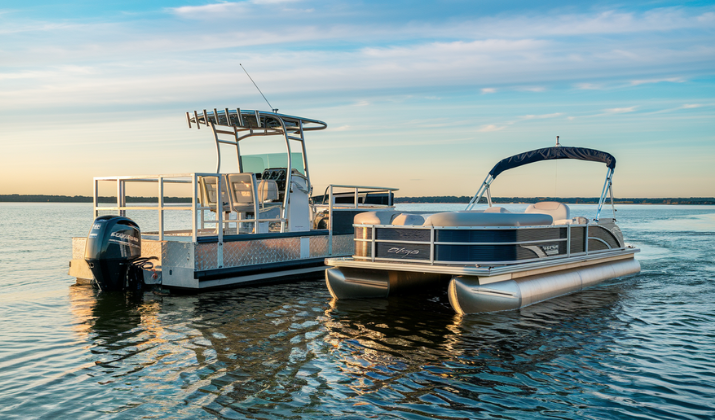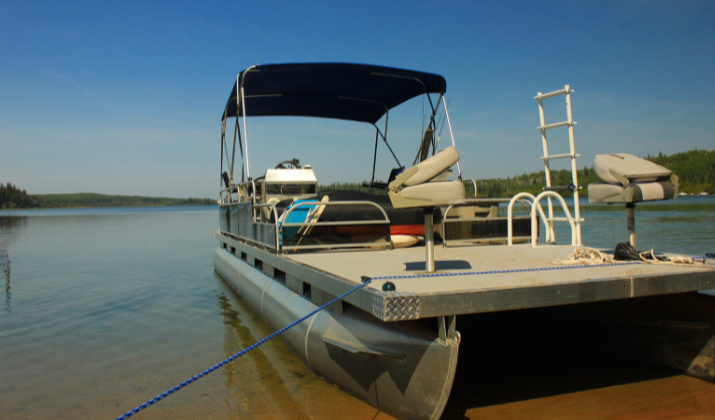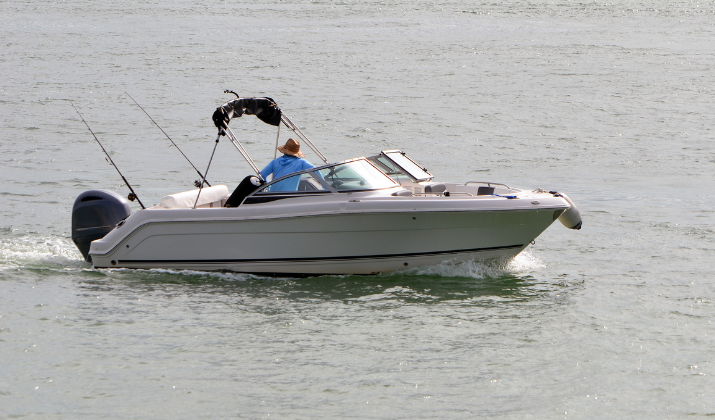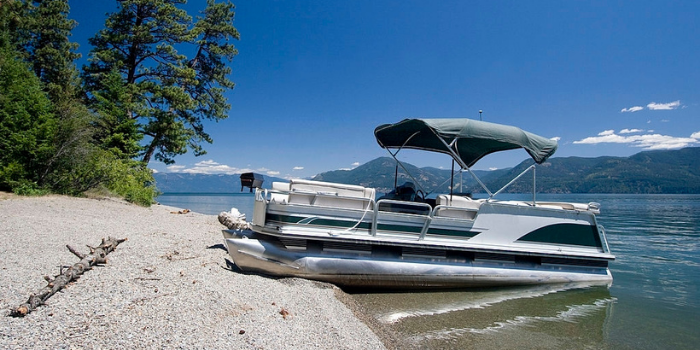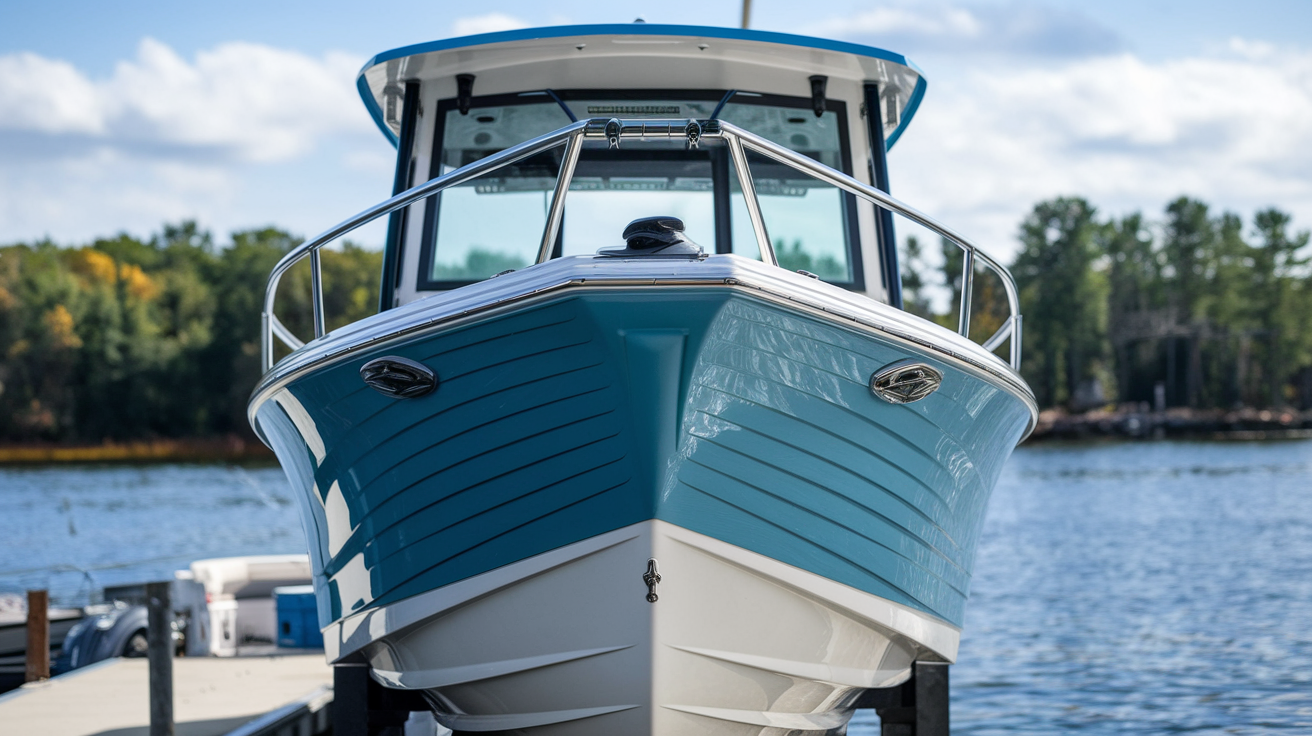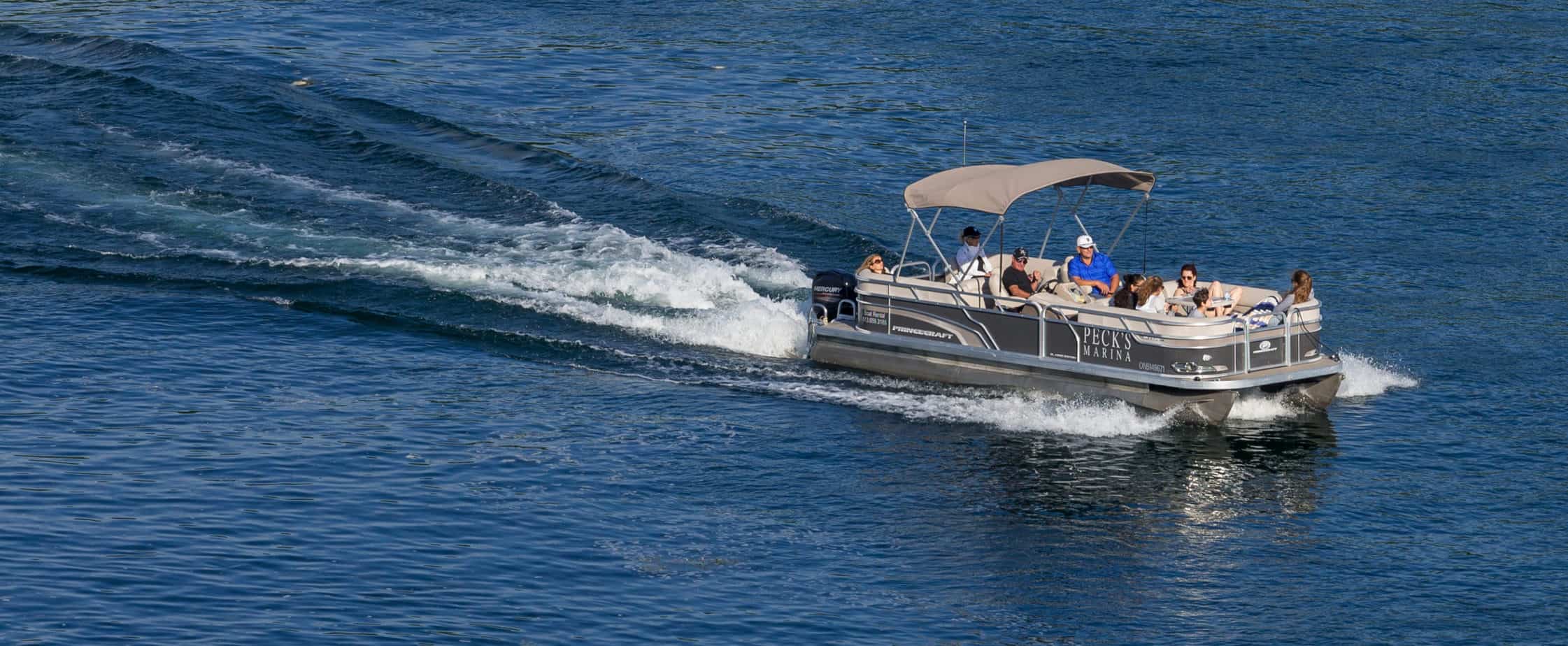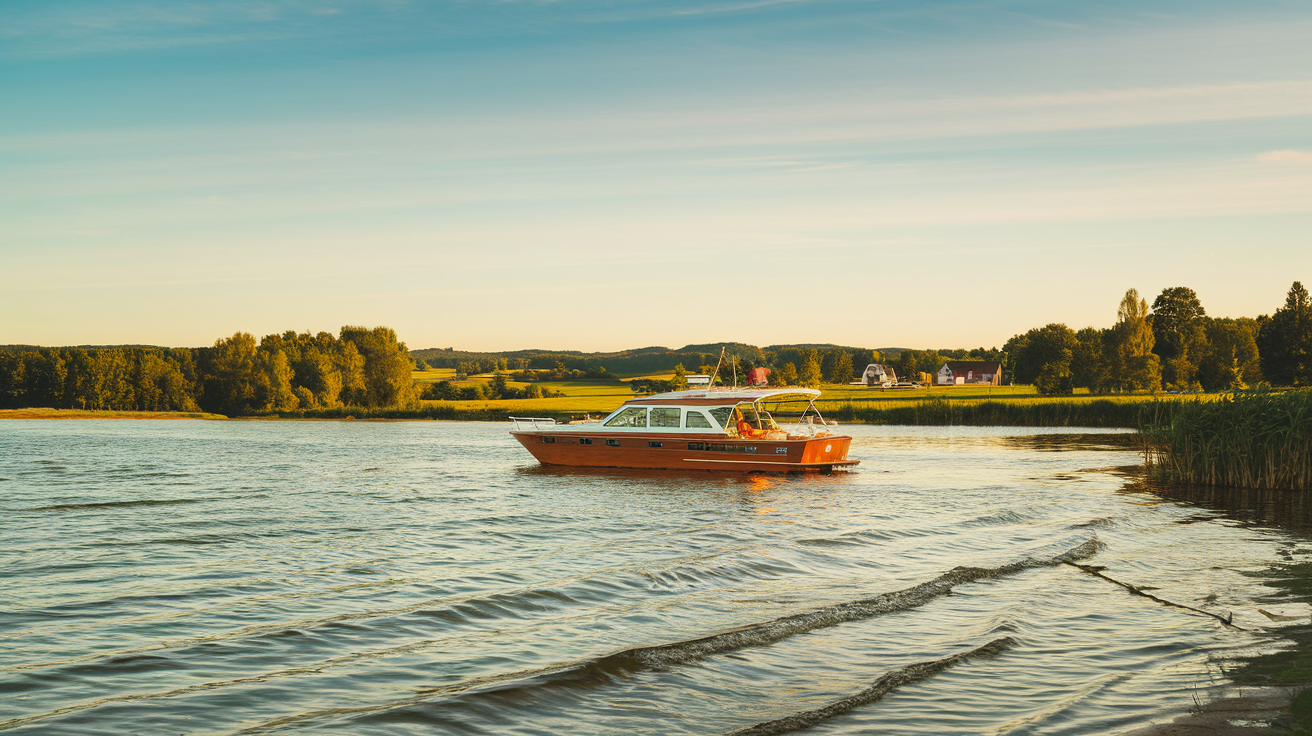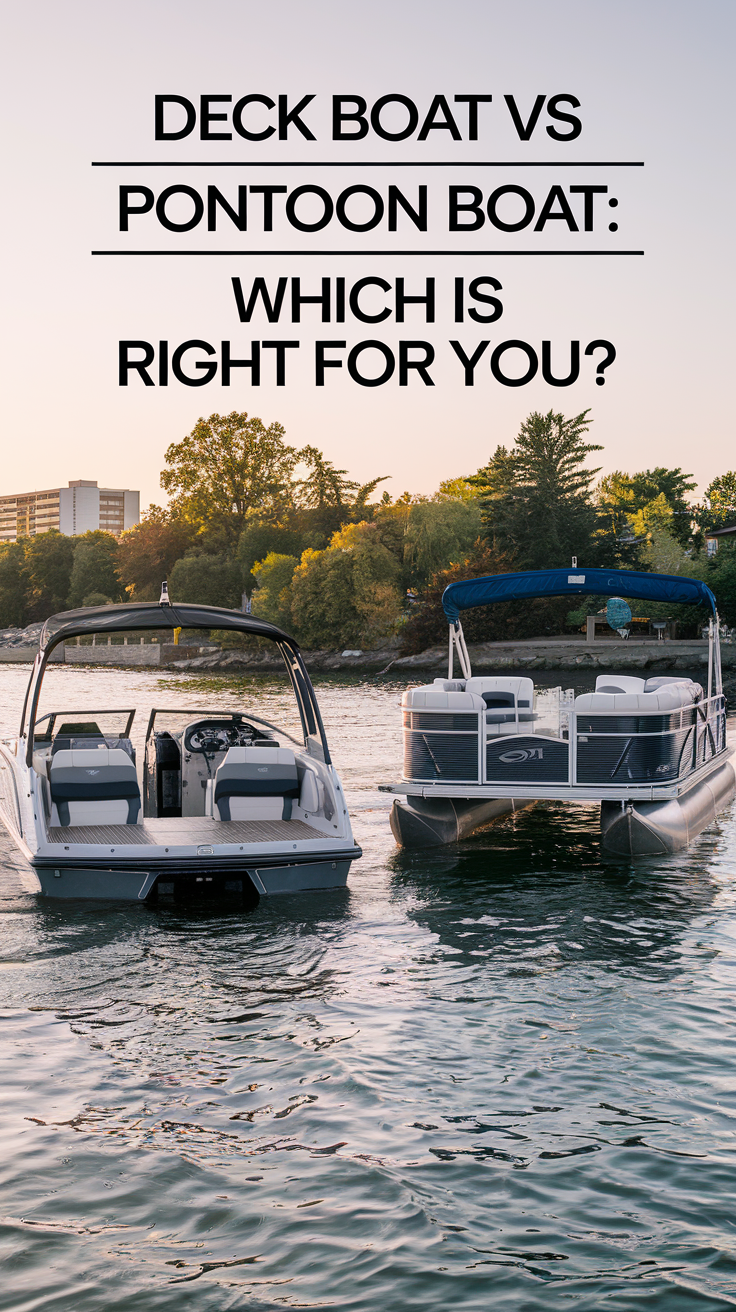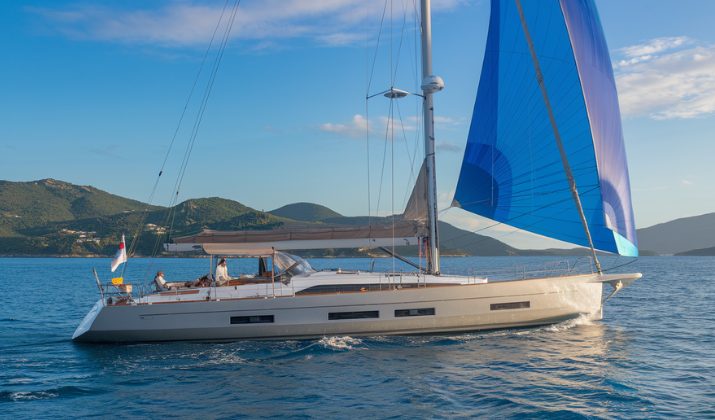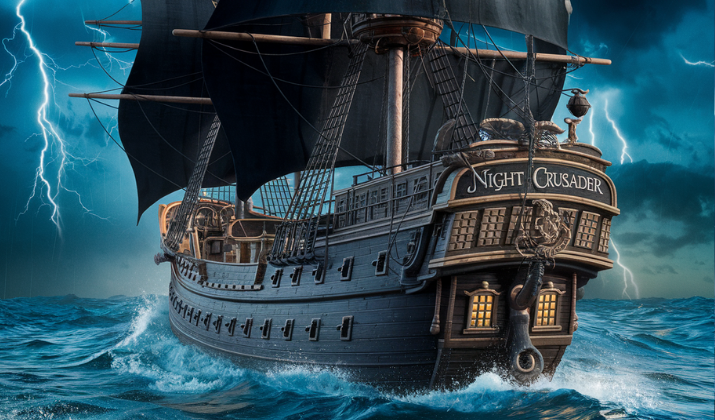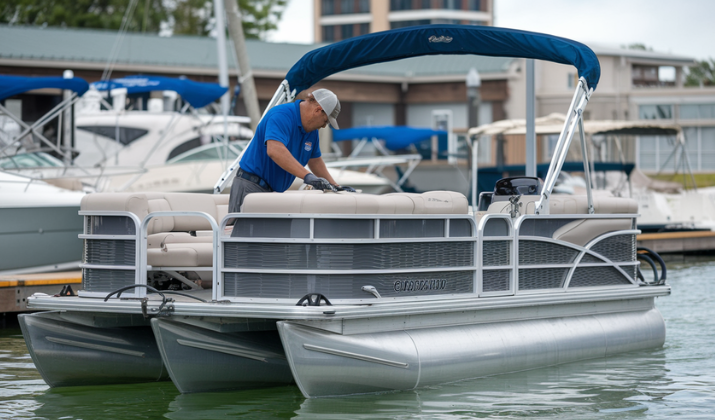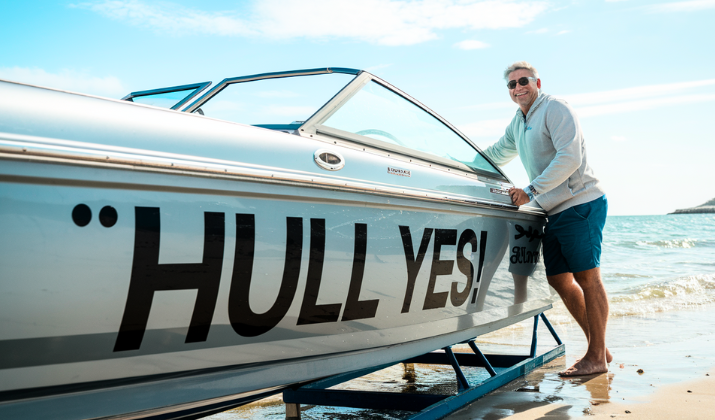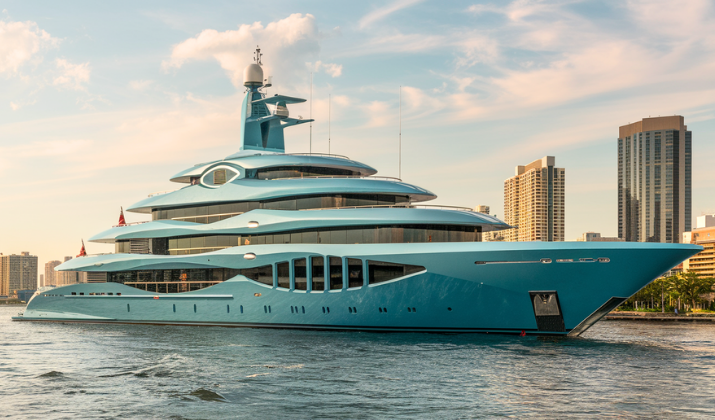If you’re in the market for a new boat, two popular options often catch your eye: the sleek, sporty deck boat and the spacious, inviting pontoon boat.
This common dilemma deserves careful consideration – after all, you’re not just buying a boat, you’re investing in countless future memories on the water.
The debate between deck boats and pontoon boats has evolved significantly over the past decade.
With technological advancements blurring traditional performance lines and manufacturers pushing design boundaries, both vessels now offer compelling features that cater to diverse boating lifestyles.
Whether you’re planning sun-soaked family gatherings, thrilling water sports adventures, or peaceful fishing excursions, understanding the distinct advantages of each boat type is crucial to making the right choice.
In this comprehensive guide, we’ll navigate through the key differences between deck boats and pontoon boats, examining everything from performance and comfort to maintenance and cost.
By the end, you’ll have a clear understanding of which vessel best aligns with your boating dreams.
Also Read: Pontoon Boat vs Flat Hull
Design and Construction
Deck Boats
Deck boats feature a traditional V-shaped hull combined with an expanded deck area. Their design borrows elements from both bowriders and pontoon boats, offering a unique hybrid approach.
The V-hull cuts through water efficiently, while the wide bow area maximizes space for passengers and gear.
Pontoon Boats
Pontoon boats are built on hollow aluminum tubes (pontoons) that provide buoyancy.
Modern versions often feature three pontoons (tritoons) for enhanced performance. Their flat deck sits atop these pontoons, creating an incredibly stable platform with extensive deck space.
Also Read: Magical Movie Night Ideas On A Pontoon
Performance Characteristics
Speed and Handling
Deck boats generally offer superior performance in terms of speed and maneuverability. Their V-hull design allows them to:
- Achieve higher speeds more efficiently
- Handle rougher waters with greater stability
- Make tighter turns with better precision
- Perform better in choppy conditions
Pontoon boats, while historically slower, have evolved significantly. Modern tritoon designs can achieve impressive speeds, but they still can’t match deck boats in terms of agility and sporty handling.
Stability and Comfort
Pontoon boats excel in stability, offering:
- Minimal rocking motion while anchored
- Better stability at low speeds
- More comfortable movement around the deck
- Superior stability in calm waters
Also Read: Pontoon Party Ideas
Space and Layout
Let’s talk about the space and the boat layout.
Deck Boats
- More traditional boat layout with defined spaces
- Usually seats 8-12 passengers comfortably
- Good storage options integrated into the design
- Typically features a swim platform at the stern
Pontoon Boats
- Open concept design with flexible seating arrangements
- Can accommodate 12-15 passengers easily
- Extensive deck space for furniture and accessories
- Multiple entry points and larger swim platforms
Check Out: Pontoon Boats Upkeep
Versatility and Activities
Take a look at what these boats are best used for.
Deck Boats
Perfect for:
- Water sports (skiing, wakeboarding, tubing)
- Day cruising
- Swimming and diving
- Light fishing
Pontoon Boats
Ideal for:
- Entertaining and social gatherings
- Relaxed cruising
- Fishing
- Sunbathing and lounging
Also Read: Pontoon Boat Hacks For Beginners
Maintenance and Durability
Wondering which one lasts longer? Which require more maintenance?
Deck Boats
- Require more regular maintenance due to complex hull design
- More susceptible to cosmetic damage
- Generally higher maintenance costs
- Need covered storage or proper winterization
Pontoon Boats
- Simpler maintenance requirements
- More resistant to cosmetic damage
- Lower overall maintenance costs
- More forgiving in terms of storage options
Explore: Best Luxury Pontoon Boats
Cost Considerations
Initial Investment
Deck boats typically come with a higher price tag due to their more complex construction and powerful engines. Pontoon boats generally offer more affordable entry-level options, though high-end models can be equally expensive.
Operating Costs
- Deck boats usually consume more fuel due to their powerful engines
- Insurance costs tend to be higher for deck boats
- Pontoon boats often have lower fuel consumption
- Maintenance costs are generally lower for pontoon boats
Also Read: Most Expensive Pontoon Boats
Making Your Decision
When considering one of the two, ask these questions. They’ll take you a step closer to what you need.
- Primary Use: Will you primarily be entertaining, cruising, or engaging in water sports?
- Operating Area: Do you boat in rough or calm waters?
- Passenger Capacity: How many people do you typically take out?
- Storage Space: Do you have adequate storage facilities?
- Budget: What are your initial and ongoing budget constraints?
Recommendation Guide
Choose a Deck Boat if:
- Performance and speed are priorities
- You enjoy water sports
- You frequently navigate rougher waters
- You prefer a more traditional boat appearance
- You want better handling in adverse conditions
Go for a Pontoon boat if:
- Entertaining and relaxation are primary goals
- You boat primarily in calm waters
- Maximum space and comfort are priorities
- You prefer a more stable platform
- Lower maintenance costs are important
Also Read: Pontoon Boat Buying Guide
Conclusion
Both deck boats and pontoon boats offer unique advantages. The right choice depends entirely on your specific needs and preferences.
Deck boats excel in performance and versatility, while pontoon boats offer unmatched space and stability.
Consider test-driving both types before making your final decision, as personal experience often provides the clearest indication of which boat best suits your lifestyle.
Also Read: Pontoon Boat Brands To Avoid

